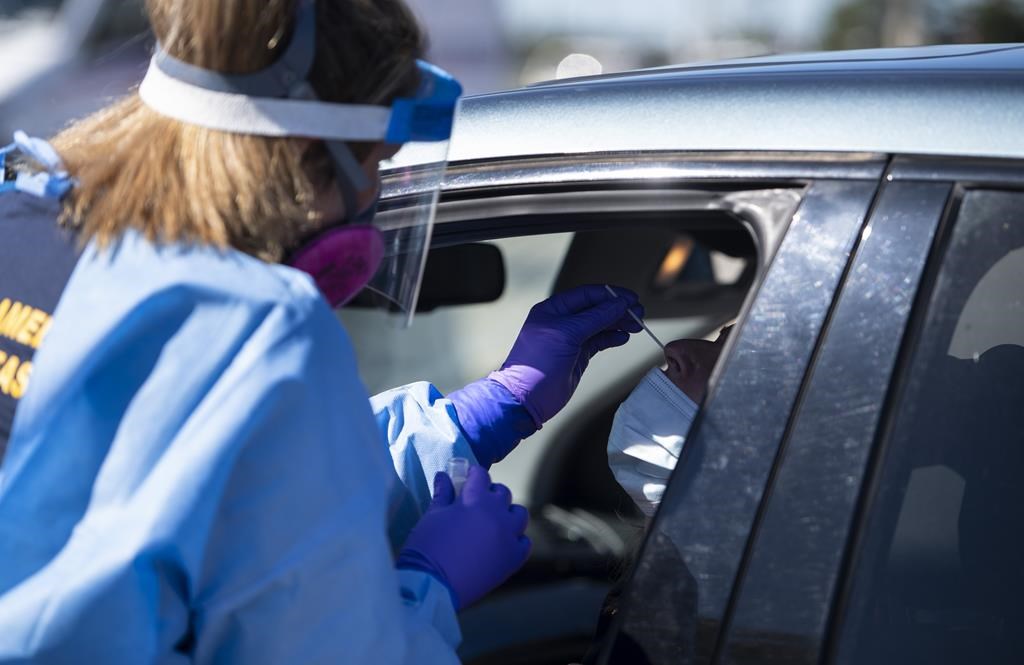TORONTO — Ontario has released a billing code for doctors to use when diagnosing long COVID – a move doctors and advocates say is a crucial first step to better understanding, treating and destigmatizing a growing problem.
The new fee code came into effect on Jan. 13. In a bulletin to all physicians a few days prior, the Ministry of Health said long COVID “has emerged as a complex and multisystem disease that is anticipated to require multidisciplinary management and treatment across the continuum of care.”
The ministry said the code can be used when treating patients with suspected or confirmed long COVID, which is also known as post-COVID-19 condition.
The province’s top doctor said the code will allow researchers to follow patients with long COVID over time.
“The designation of a specific code really does help us track, count and look at the burden of this across Ontario,” chief medical officer of health Dr. Kieran Moore told The Canadian Press.
The Ministry of Health sent out guidelines to primary care physicians to help them understand how to assess and manage patients with long COVID.
Moore pointed to the work of a few clinician researchers leading the way on long COVID, including Dr. Kieran Quinn.
“This code is a big deal, it’s helpful for us and I think it’s going to help change the way health care is delivered in Ontario in the future for people with long COVID,” said Quinn, a clinical expert in long COVID and an assistant professor at the University of Toronto.
Quinn and other researchers have used painstaking work to estimate how many Canadians are living with long COVID. They believe about 1.4 million have the condition.
The virus that causes COVID-19 affects virtually every part of the body. More than 100 symptoms have been described.
The most common symptoms include deep-rooted fatigue, brain fog heart palpitations, insomnia and mood disorders like anxiety and depression.
“We have lots of work to do on pretty much everything to do with the treatment and support of people with it,” Quinn said. “But I think the first step is just acknowledging that it’s a real thing.”
Quinn commended the ministry for the move.
“It really is critical and it’s something that we’ve been asking for, and advocating for, for a while now,” he said.
The plan, for now, to tackle long COVID in the province, will lie with primary care physicians.
“It is the belief of our review that the vast majority of patients can be treated through their primary health care provider,” Moore said.
Ontario’s disbanded science table told the province in a brief published in September that the lack of a diagnostic code for long COVID was a problem. It also warned the government in October that the heavy lifting on COVID-19 going forward will fall to primary care physicians.
There is a family doctor shortage in the province, with 1.8 million Ontarians without one. Another 1.7 million have family doctors aged 65 or older.
Moore also said as a backup to family doctors, a number hospitals have opened up long COVID outpatient clinics.
There are 11 of them across the province, although all in cities and only one up north, in Thunder Bay, Ont.
“There’s just not enough of them,” Quinn said.
For Suzie Goulding, life has not been easy recently. She got quite sick early in the pandemic, testing was near impossible to qualify for and her family doctor didn’t believe it was COVID-19.
Her doctor has oscillated over the intervening years, but has never formally diagnosed her with long COVID. When she struggled to walk, she saw a neurologist who told her she was suffering from anxiety.
She struggles with low energy levels and lives with a persistent brain fog that affects her speech.
“The more that I speak, the less words I can find,” she said.
She started COVID Long-Haulers Support Group Canada to help others find a community where they were believed. They now have 18,000 members across the country and have become pivotal in helping researchers like Quinn better understand the disease.
Those with it are also struggling with grief, she said.
“People are grieving the loss of who you were,” she said. “I’m not who I was before COVID.”
The new fee code is a small victory for both her and the group.
“It’s just the first step of a thousand,” she said.
“We want to see a commitment from the government with some kind of strategy as to how they’re going to deal with long COVID.”
There is some hope on the treatment front.
Quinn and his colleague, Dr. Angela Cheung, are soon set to launch clinical trials, dubbed the Reclaim Trial, in Ontario, that will examine a variety of treatments “to actually improve people’s quality of life and to treat long COVID directly.”
This report by The Canadian Press was first published Jan. 27, 2023.


